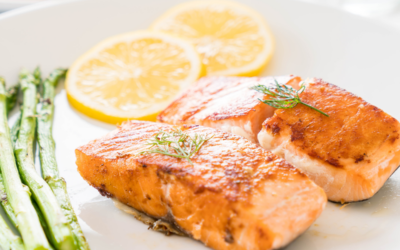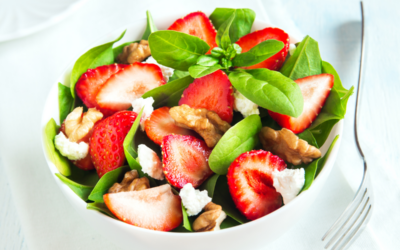What is Organic Basics
Organic Basics is a clothing brand started in 2014. They began with selling underwear and quickly reached their fundraising goal in a day. That’s when Organic Basics started. Now, they sell various activewear and everyday items. They focus on using good materials and craftsmanship, following the simple Scandinavian approach. Organic basics choose materials based on two things: how much they impact the environment and how long they last.
When you visit a website, it uses electricity to transfer data, creating carbon emissions. Organic Basics made a version of their site that has a smaller impact. This low-impact site produces 70% less CO₂ than their regular one. Twice a year, they give a portion of their profits to grassroots activists and groups supporting the planet and communities. It’s called the Organic Basics Fund. This helps in battling climate change, restoring biodiversity, and protecting vulnerable communities.
Who Founded Organic Basics
Christoffer Immanuel, Mads Fibiger, and Alexander Christiansen, three friends from Denmark, started Organic Basics. They wanted to create a clothing brand that was honest, responsible, and high-quality, with values people could connect to. Even though they didn’t have any experience in fashion and everything was new to them, they still created Organic Basics. Because they were new to the industry, they looked at everything with fresh eyes. This allowed them to question the whole process and make sure that each step they took was better for the environment, the workers, and the industry as a whole.
Some Facts About Organic Basics
- Founded by Friends: Organic Basics was started by three friends from Denmark named Christoffer Immanuel, Mads Fibiger, and Alexander Christiansen.
- Eco-Friendly Materials: They use materials like organic cotton, grown without harmful chemicals, reducing the impact on the environment.
- Reducing Carbon Footprint: Organic Basics cares about the planet by using renewable energy sources like solar and wind power, lessening their impact on climate change.
- Fair Working Conditions: While they may not have a formal Code of Conduct, Organic Basics ensures good labor practices by regularly checking and auditing their suppliers.
- Living Wage Commitment: In some parts of their supply chain, they make sure workers receive a living wage, showing their dedication to fair pay.
- Animal-Friendly Choices: Organic Basics has a ‘good’ rating in animal welfare, avoiding materials like fur, leather, down, or exotic animal skin and opting for sustainable alternatives.
- Low-Impact Website: Their website has a low-impact version, using 70% less CO₂, underlining their commitment to sustainability even in the digital space.
- Donations for a Cause: Twice a year, Organic Basics donates part of its profits through the Organic Basics Fund, supporting activists and organizations fighting for the environment and communities.
- No Harmful Substances: By using organic cotton, they limit the use of harmful chemicals, making their products safer for both consumers and the environment.
- Focus on Simplicity: Organic Basics follows the Scandinavian principle of simplicity, emphasizing a straightforward approach in their designs and practices.
Positive Aspect Of Organic Basics That We Love
Organic Basics is a leading brand in the fashion industry, especially when it comes to being eco-friendly. They’ve earned a ‘great’ rating for their environmental practices.
Eco-Friendly Materials:
What makes Organic Basics special is that they use a lot of eco-friendly materials, like organic cotton. This type of cotton is grown without harmful pesticides and chemicals, making it a better choice for the environment. By using organic cotton, Organic Basics reduces the use of chemicals, water, and wastewater in making their clothes.
Animal Welfare:
When it comes to animals, Organic Basics also has a ‘good’ rating. They don’t use fur, leather, down, or exotic animal skin in their products. Instead, they choose more sustainable options like recycled wool and exotic animal hair.
Labour Practices:
In terms of how they treat their workers, Organic Basics has a ‘good’ rating. They might not have a formal Code of Conduct, but they do have a statement covering workers’ rights. This shows their commitment to fair and safe working conditions. They also keep a close eye on their supply chain, checking the conditions and practices of their suppliers through audits and visits.
Fair Wages:
Organic Basics stands out for making sure that some parts of their supply chain receive a living wage. They don’t specify the exact percentage, but their commitment to fair wages shows they care about their workers’ well-being.
Renewable Energy:
Organic Basics is also careful about their impact on the climate. They use renewable energy sources, like solar or wind power, in their supply chain. This helps them lower their carbon footprint and use less fossil fuels.
By using these ethically sourced materials, Organic Basics shows they’re serious about creating fashion that’s both cruelty-free and good for the environment. This fits with their goal of becoming a more environmentally conscious brand.
Spring Friendly Pieces To Buy From Organic Basics This Spring:
1. Organic Cotton T-Shirts:
You can choose these shirts in many colors, just right for feeling fresh and light in spring. These shirts are made from organic cotton, and let me tell you, they are super soft and comfy. It’s like wearing a cozy cloud, and with all those colors, it’s an easy way to bring a cheerful, comfortable vibe to your spring wardrobe.
2. Lightweight Bamboo Underwear:
Imagine wearing super comfy underwear, like a cozy hug made from bamboo! Bamboo undies are awesome for spring because they let your skin breathe and keep you feeling cool. When it gets warmer outside, these bamboo undies are like a cool friend, making sure you stay comfy and fresh. They’re not just soft; they’re perfect for making your spring days extra comfy and cool.
3. Organic Linen Shirts:
Keep yourself cool and looking cool in the spring with Organic Basics’ organic linen shirts. These shirts are not just comfy; they give you a relaxed fit, making you feel at ease. Plus, they let the air flow through, so you stay comfortable even on warmer days. It’s like having a stylish and breezy friend in your wardrobe, making springtime even more enjoyable.
4. Recycled Polyester Activewear:
Get ready for all the action during spring with Organic Basics’ activewear made from recycled polyester. This special fabric is not just good for the environment; it’s designed to keep up with all your moves. So, when you’re out and about on those energetic spring days, you’ve got the perfect blend of sustainability and high-performance gear to keep you going strong. It’s like having your own eco-friendly and super comfy workout buddy right in your wardrobe!
5. Flowy Hemp Dresses:
Step into spring with style in Organic Basics’ flowy hemp dresses. These dresses are not just about looking good; they’re made from hemp, a material that’s good for the planet. So, while you enjoy the warmer days, you’re also making a sustainable choice. These dresses are like a breath of fresh air, keeping you comfy and chic in the springtime sun. It’s the perfect combination of fashion and eco-friendliness for those lovely, warmer days.
Takeaway
Organic Basics isn’t just a clothing brand; it’s a commitment to a better, more sustainable way of dressing. Started in 2014 by friends from Denmark, it began with a goal to create honest, responsible, and high-quality fashion. From eco-friendly materials to reducing their carbon footprint, they’ve earned a ‘great’ rating for their environmental practices. With a focus on simplicity, fair wages, and donations to support the planet, Organic Basics is leading the way in conscious fashion.
For more health and fitness tips, explore WholeYum, your go-to destination for a healthier lifestyle. Discover nutritious recipes, workout routines, and wellness advice to elevate your well-being. Visit WholeYum now and start on a journey towards a healthier, happier you!
Frequently Asked Questions (FAQs)
1. What sets Organic Basics apart in terms of sustainability?
Organic Basics stands out for its commitment to eco-friendly materials, particularly organic cotton, reducing environmental impact and earning a ‘great’ rating in environmental practices.
2. How does Organic Basics contribute to renewable energy use?
The brand minimizes its carbon footprint by incorporating renewable energy sources, such as solar and wind power, throughout its supply chain, demonstrating a dedication to reducing reliance on fossil fuels.
3. What labor practices does Organic Basics follow?
While lacking a formal Code of Conduct, Organic Basics has a ‘good’ labor rating, with a documented statement on workers’ rights. They regularly audit and visit suppliers to ensure ethical standards and fair working conditions are maintained.
4. Does Organic Basics ensure fair wages for its workers?
Yes, Organic Basics is committed to ensuring a living wage in certain parts of its supply chain. Although the exact percentage isn’t specified, this commitment reflects the brand’s dedication to improving the lives of its workers.
5. How does Organic Basics address animal welfare in its products?
Organic Basics has a ‘good’ rating in animal welfare, refraining from using fur, leather, down, or exotic animal skin. Instead, the brand opts for sustainable alternatives like recycled wool and exotic animal hair.
6. How does Organic Basics contribute to reducing the environmental impact of its website?
The brand has developed a low-impact version of its website, utilizing 70% less CO₂ compared to the regular site. This initiative showcases their commitment to sustainability even in digital practices.
7. How does Organic Basics give back to the community and environmental causes?
Twice a year, Organic Basics donates a portion of its profits through the Organic Basics Fund, supporting grassroots activists and organizations dedicated to fighting climate change, restoring biodiversity, and protecting vulnerable communities.















